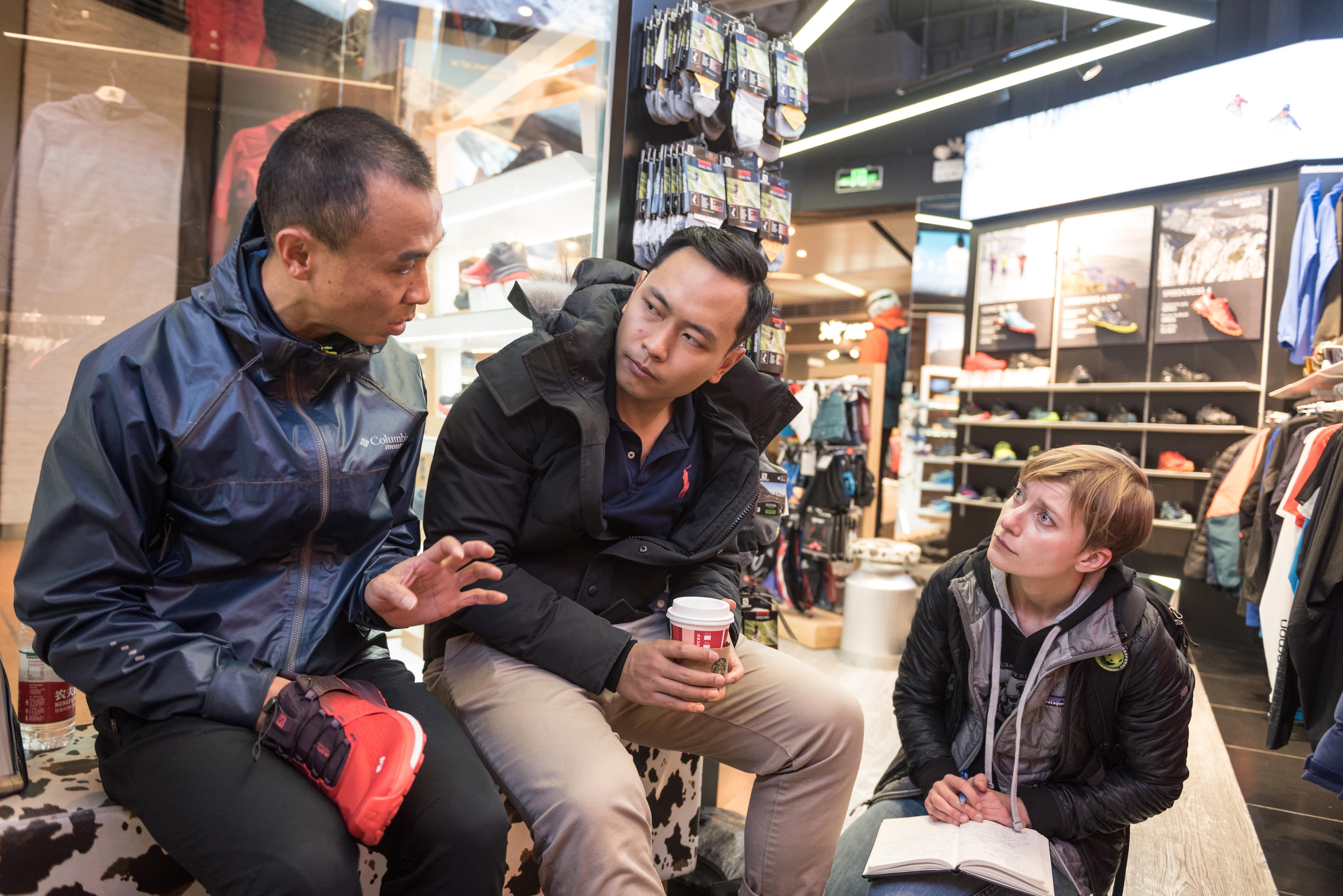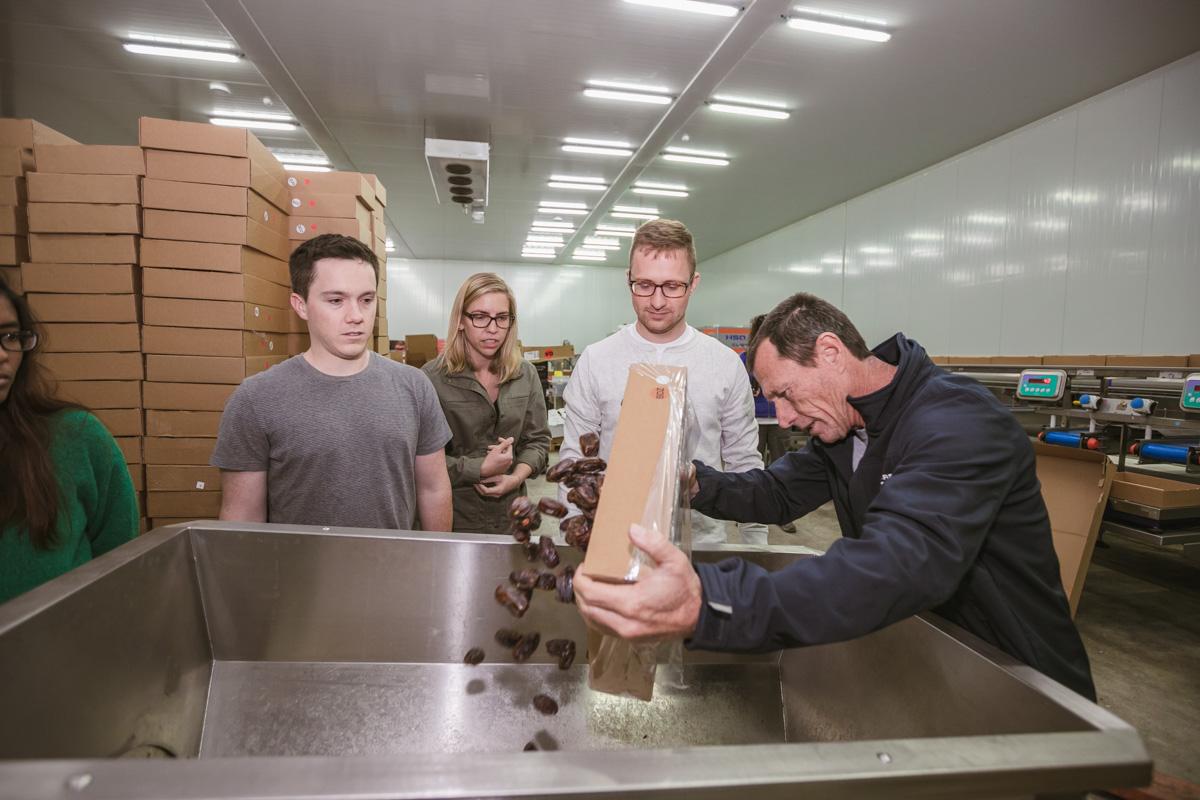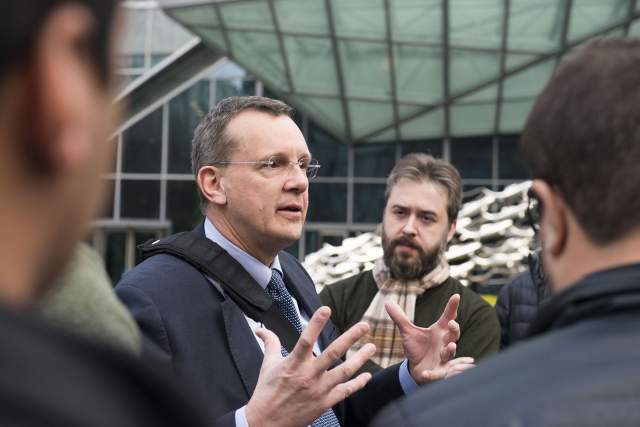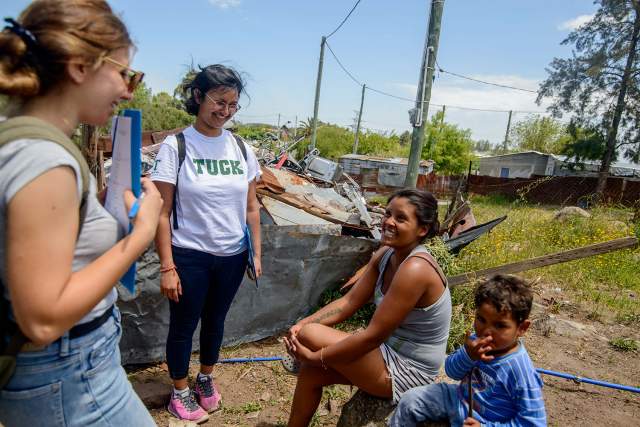Every year, Tuck students put their MBA education and expertise to work and jet off to far-flung parts of the world to help companies work out some of their biggest business challenges. Whether that means investing in an overseas market or bringing a product to market, the value provided to clients is significant.
“The stakes are high with OnSite,” says OnSite director Kerry Laufer. “Our clients make a significant investment of time and resources in a project, and they expect results. This keeps teams accountable and is what makes it such a rich and authentic learning experience for Tuck students.”
Since kicking off in 1997, OnSite Global Consulting has taken more than 1,200 students to over 60 countries around the world. We explore a few recent examples of how Tuck teams have made a difference for clients.
Brooks Sports
As a Seattle-based retailer that makes running shoes and apparel, Brooks wanted to expand in China but wanted to know more about the market and shopping patterns among Chinese consumers who were avid runners.
The Tuck team comprised of six T’19s, flew to China. For three weeks, the team conducted extensive, in-depth research that provided Brooks with an assessment of the market.
They created a survey to assess important factors, such as where and why Chinese consumers run, as well as where they buy running gear. They distributed their survey to 1,000 people in China to assess their buying and running habits, then conducted 60 interviews with consumers in Shanghai and in Chengdu, across parks, tracks and running stores.
Expansion in China was an important business decision for Brooks, which is led by Jim Weber T’86 and the research the Tuck team did focused on providing them with the information they needed to help them solidify their strategy.

“When we made our final recommendations to Brooks, we had great data points that we could point to,” recalled Christina Louis, T’19, a runner who knew the industry. “We were able to tell them specific information about consumers’ running behavior in China and where they liked to do their shopping.”
Brooks also benefited from the array of hard and soft skills that the Tuck team brought to the table. Team members Tong Guo and Jewel Lai worked in China and brought a crucial cultural know-how to the team, which positively impacted their ability to conduct research effectively.
The impact was equally important for students. Marcus Morgan was a sports enthusiast who minored in Chinese as an undergrad and had always wanted to go China.
“One of the priorities for me in business school was to do international travel—for work and for fun,” Morgan says. “I’m not fluent, but I’m familiar with the language and have always been interested in Chinese culture. The OnSite program was a great way for me to fulfill this professional goal.”
Oceana Energy
During the course of three weeks, another Tuck team flew to the UK to give Oceana Energy an in-depth look at the tidal energy market in England and Scotland. While there, the team helped Oceana determine its strategy for testing and collecting data on a full-scale model of the company’s tidal turbine, attracting outside investment, and lowering the company’s projected levelized cost of energy (LCOE). Developed in collaboration with the Naval Surface Warfare Research Center in West Bethesda, Maryland, this turbine has been successfully tested in rugged river conditions in the Tanana River of Alaska by the University of Alaska.
While there, the Tuck team conducted more than 50 interviews with industry participants across London, Edinburgh and Orkney to get a lay of the land. Given that tidal energy is a relatively nascent industry that has experienced costly failures, it wasn’t easy to acquire funding from investors. The company therefore needed guidance in developing strategic and cost-efficient routes to market.


